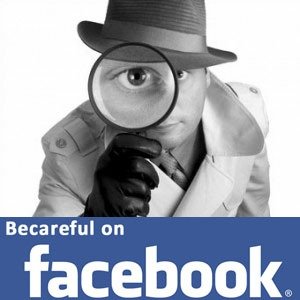The Importance of Social Media in Social Security Disability Claims
 Before the advent of the Internet, investigators had a much harder job. Collecting information, verifying statements and making sure everything added up is a lot more difficult without the help of Facebook, Twitter, Instagram and other social networking services. The rise of these websites has encouraged people to post a plethora of personal information about themselves online for anyone to access. It’s important to understand that friends and family are not the only people taking notice. While this information is primarily useful in the personal injury context, it can be equally valuable when it comes to Social Security Disability claims.
Before the advent of the Internet, investigators had a much harder job. Collecting information, verifying statements and making sure everything added up is a lot more difficult without the help of Facebook, Twitter, Instagram and other social networking services. The rise of these websites has encouraged people to post a plethora of personal information about themselves online for anyone to access. It’s important to understand that friends and family are not the only people taking notice. While this information is primarily useful in the personal injury context, it can be equally valuable when it comes to Social Security Disability claims.
Disability benefits exist to offer support due to those unable to work due to a debilitating condition. Would a quick look through your social media profiles indicate that you deserve such benefits? Better hope so, because it could spell disaster for your case if you’re claiming a terrible back injury yet have pictures plastered across Facebook of your recent tango lessons or bungee jumping adventure.
Investigators and judges use social networking websites and could conceivably check up on what you’ve been doing while you’re claiming injury. And it’s not just your profile that could cause problems, being tagged in a photograph by a friend who does not have privacy settings on a Facebook page can also spell trouble. While this article should not be read as encouraging deception, disabled parties should be aware that anything posted online is not 100% private.
The following are some suggested steps for ensuring that your online footprint remains as small and as private as possible.
1. Immediately make your profile “private,” and set all privacy settings to the highest level.
2. Remember to not discuss your accident, injuries or treatment, including any prescribed medication, on ANY social networking sites.
3. Avoid discussing recent activities you’ve engaged in, physical exertion, abilities and limitations, or any other information that may bear on what you can and cannot do because of your condition.
4. Be sure you know everyone who is your “friend.” Do not accept friend requests from people you do not personally know.
5. Review your friend list and block anyone you are not 100% sure you trust. Investigators could pose as a friend or get information from others who are to gain access to potentially incriminating information that could negatively affect your claim.
If you think you may be entitled to Social Security Disability benefits or have questions, call The Law Offices of John T. Nicholson at 1-800-596-1533 for a free consultation today.


ABA rule 2.9 ex parte C) A judge shall not investigate facts in a matter independently, and shall consider only the evidence presented and any facts that may properly be judicially noticed.
They better not be using ex parte info against you!
I was just denied SSD because I have a facebook
I was curious if your Facebook was set to private, I’m getting my disability review right now so I shutdown my FB
Will an ALJ send out hired goons to spy and video people for SSDI? I had my hearing, then the ALJ sent me to a CE. After that..i noticed on 2 occasions people videoing in a public place that I was in and I am sure I would be on the videos, they weren’t on me the whole time per say, but it was strange. Then after that I was sent notice that I would have to go back for another CE, it was the same place same doctor. Now I have been scheduled for a supplemental hearing..this whole thing to be is bizzare.